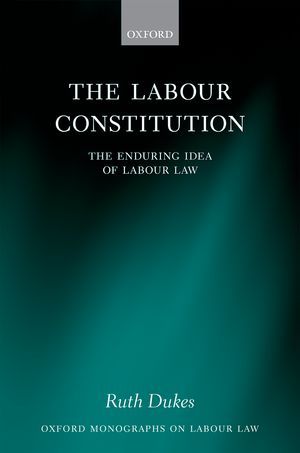
Exploring different approaches to the study of labour law, this book examines different ways of conceiving of the subject and of describing, analysing, and criticizing current legislation and policy in the field. In particular, it assesses the validity of the suggestion that 'old ways' of thinking about the subject have become outdated. Detailed consideration is given to two such old ways: the idea of the labour constitution, developed by Hugo Sinzheimer in the early years of the Weimar Republic, and the principle of collective laissez-faire, elaborated by Otto Kahn-Freund in the 1950s. It asks whether, and how, these ideas could be abstracted from the political, economic, and social contexts within which they were developed so that they might still usefully be applied to the study of labour law.
The central argument of this book is that the labour constitution can be developed so as to provide an 'enduring idea of labour law', and this is constructed against a critique of modern arguments which favour reorienting labour law to align more closely with the functioning of labour markets. As compared with the posited 'law of the labour market', the labour constitution highlights the inherently political nature of labour laws and institutions, as well as their economic functions. It provides a framework for analysing labour laws, labour markets, and labour market institutions, which does not limit the capacity of scholarship in the field to retain its critical edge. It focuses our attentions on important questions, and important fields of enquiry: on questions, not least, of the consequences for workers of the narrowing and disappearance of spaces for democratic deliberation and democratic decision-making as markets continue to expand.